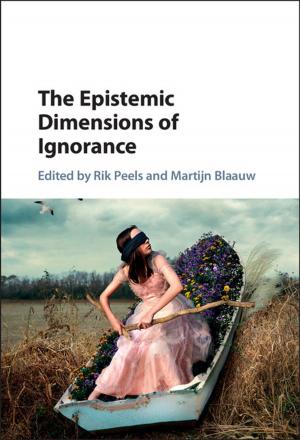Female Friends and the Making of Transatlantic Quakerism, 1650–1750
Nonfiction, History, British, Social & Cultural Studies, Social Science, Religion & Spirituality| Author: | Naomi Pullin | ISBN: | 9781108245364 |
| Publisher: | Cambridge University Press | Publication: | April 30, 2018 |
| Imprint: | Cambridge University Press | Language: | English |
| Author: | Naomi Pullin |
| ISBN: | 9781108245364 |
| Publisher: | Cambridge University Press |
| Publication: | April 30, 2018 |
| Imprint: | Cambridge University Press |
| Language: | English |
Quaker women were unusually active participants in seventeenth- and eighteenth-century cultural and religious exchange, as ministers, missionaries, authors and spiritual leaders. Drawing upon documentary evidence, with a focus on women's personal writings and correspondence, Naomi Pullin explores the lives and social interactions of Quaker women in the British Atlantic between 1650 and 1750. Through a comparative methodology, focused on Britain and the North American colonies, Pullin examines the experiences of both those women who travelled and preached and those who stayed at home. The book approaches the study of gender and religion from a new perspective by placing women's roles, relationships and identities at the centre of the analysis. It shows how the movement's transition from 'sect to church' enhanced the authority and influence of women within the movement and uncovers the multifaceted ways in which female Friends at all levels were active participants in making and sustaining transatlantic Quakerism.
Quaker women were unusually active participants in seventeenth- and eighteenth-century cultural and religious exchange, as ministers, missionaries, authors and spiritual leaders. Drawing upon documentary evidence, with a focus on women's personal writings and correspondence, Naomi Pullin explores the lives and social interactions of Quaker women in the British Atlantic between 1650 and 1750. Through a comparative methodology, focused on Britain and the North American colonies, Pullin examines the experiences of both those women who travelled and preached and those who stayed at home. The book approaches the study of gender and religion from a new perspective by placing women's roles, relationships and identities at the centre of the analysis. It shows how the movement's transition from 'sect to church' enhanced the authority and influence of women within the movement and uncovers the multifaceted ways in which female Friends at all levels were active participants in making and sustaining transatlantic Quakerism.















